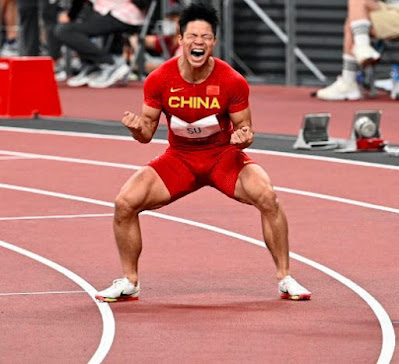The lockdowns imposed due to the COVID-19 pandemic have had multifaceted effects on athletes, impacting their physical fitness, training routines, mental well-being, and career opportunities, among other aspects of their professional and personal lives.
Recently, a global study investigated training-related knowledge, beliefs, and practices of 12,526 athletes from 142 countries and six continents during the COVID-19 lockdown (Washif et al., 2021).
Based on this study, most athletes wanted to maintain training and disagreed with the idea of not training during lockdown. However, they had moderate knowledge and beliefs about training disruptions, de-training, and their effects.
Furthermore, the study reported that during lockdown, athletes trained alone and focused on general fitness and health maintenance. Specific training, such as endurance and interval training, was challenging to maintain at pre-lockdown levels.
The authors also noted that training frequency, duration, and intensity were reduced for most athletes.
The study provides insights for policy makers, athletes, and their teams regarding lockdown challenges, and ideas to adapt training practices during similar disruptions.
More insights regarding the general impact of lockdown on athletes from the study and other resources, are provided below.
Physical, physiological, and performance effects
Decreased fitness levels as a result of lack of regular and intensive training, which affects cardiovascular fitness, muscle strength, and endurance, etc.
Weight gain or loss. Changes in dietary habits (in negative ways), combined with decreased physical activity, have negative impacts on athlete's body composition.
Reduced skill proficiency due to missing regular practice that diminish skill levels in certain sports (particularly those that requires sophisticated equipment).
Increased injury risks from a sudden resumption of intense training post-lockdown.
Mental and emotional effects
Mental health concerns may be triggered due to increased feelings of anxiety, depression, and stress, resulted from uncertainty about the future and disruptions in routine.
Lack of motivation, as a result of the absence of competitions, as well as structured training and regular interaction with teammates.
Concerns about returning to pre-lockdown performance levels may also induce stress.
Changes in routine and environment (home training; limited resources) can lead to distractions and decreased concentration.
Athlete's career and future
Lost opportunities, e.g., sponsorship deals. Missing key events may impact athlete ability to look for, or be scouted or gain sponsorships.
Extended lockdowns or multiple lockdowns can potentially shorten the career span of athletes, especially in sports with "limited active years."
Nevertheless, it's worth noting that lockdown effects can vary depending on the athlete's sport, level of professionalism, geographical location, among others.
For example, the Washif et al. (2021) study outlined that higher level athletes (e.g., world class, international-level) had better access to resources and were more receptive to remote coaching.
"Higher level athletes had a stronger desire to maintain training, retained training specificity to a greater degree, had better access to resources, and were more receptive to remote coaching compared to lower level athletes during the COVID-19 lockdown" (Washif et al., 2021).
Lockdowns significantly altered athletes' lives and routines, impacting physical health, mental well-being, and career trajectories, highlighting the need for specific assistance, as well as adaptability and resilience in unprecedented times.
Reference
Washif JA, Farooq A, Krug I, Pyne DB, Verhagen E, Taylor L, et al. Training during the COVID-19 lockdown: knowledge, beliefs, and practices of 12,526 athletes from 142 countries and six continents. Sports Medicine. 2021; 1-16. (Link)
Read more...




